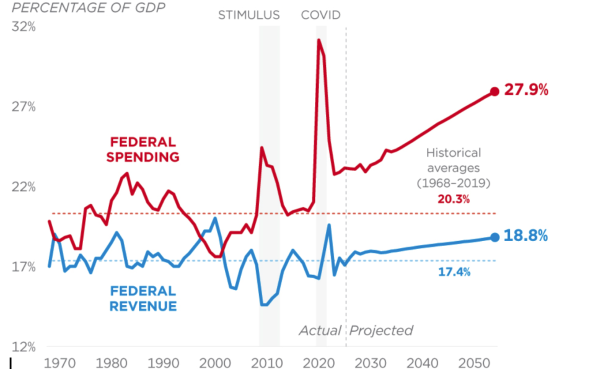Exploring the Center for Teaching
On average, new Westminster teachers already have about nine years of teaching experience under their belt. However, at Westminster, learning never ceases as the faculty constantly seeks to update curriculum and pedagogy. Assisting them in this endeavor is the Center for Teaching, a team devoted to creating and implementing programs that help teachers become the best they can be. The Center’s mission is to stimulate and support professional growth among faculty.
The Center for Teaching has many impactful programs, significant among them being the Program Transformation Project that produces large scale benefits. This program provides financial support in the form of grants for teachers to execute extensive projects that transform parts of the curriculum by involving innovative methods in the classroom. Last year, the Center for Teaching supported three middle-school faculty members in synthesizing an innovative course structure that integrates multiple disciplines into a comprehensive perspective. After a year of perfecting the instructional and theoretical design, the course is now being offered to seventh graders at Westminster. “Students who are in that course have those three teachers back to back, so they have this large block of time to work on this interdisciplinary course that involves foreign language, art, and social studies,” said executive director of the Center for Teaching Robert Ryshke.
Besides the larger Program Transformation Grants, the Center also advances curriculum through the Curriculum Development Grants. These grants assist in integrating a specific piece of technology or developing new methods of instruction into a course or lesson. For example, much of the current neuroscience curriculum was developed by upper school science teacher Dr. Kasia Kaufman as a result of a Curriculum Development Grant. Upper school physics teacher Akwetee Watkins used a curriculum development grant to write new lab procedures for the 9th grade physics course.
Over the last five years, upwards of $200,000 in Curriculum Development Grants have been given by the Center. The Center intends to continue helping support curriculum development in classes such as the Advanced Placement Chemistry class.
“I have some initial, potential future plans for a chemistry project for the 2019/2020 year that should be pretty cool involving pyrolysis of solid plastics like PE into fuel fractions,” said upper school chemistry teacher Pete Chen.
These grants are provided by the Center from an annual operating budget. The annual operating budget is contributed by the school to faculty professional development and is supported primarily by tuition. The Center also receives financial support from endowed grants given by parents and alumni.
The Center for Teaching also helps improve instructional strategies through the Extraordinary Teaching Project. This project involves taping and reviewing videos of different teaching styles through which teachers not only gain feedback of their own teaching styles but also gain valuable insight about methods used by their colleagues. The project also helps assimilate new faculty members into Westminster by pairing every new faculty member with a veteran teacher referred to as the ambassador.
“What we try to do is partner them up with a faculty member that helps them acculturate, get used to Westminster, talk something about things that’re Westminster specific, and to be an instructional partner,” said dean of faculty Thad Persons.
New teachers identify specific areas in which they are interested in receiving feedback. The areas can vary from student engagement to the pacing of lessons. Persons then observes the teaching sessions and provides feedback on specific areas requested by the teachers.
As a first year teacher at Westminster, high school math teacher Amanda Meagher went through this process recently. “Anything’s helpful,” Meagher said. “Any feedback you can get about your classroom is helpful. So anytime someone can stop by and give you any feedback, it’s great.
The first step in the mentoring process begins with recorded sessions of both the new teacher and the ambassador. Thereafter the new teacher, the ambassador and Persons come together to analyze the differences in methods of teaching. This conversation draws attention to more effective instruction styles and allows new teachers to get individualized feedback.
“Yes, it was very helpful to have Mr. Persons come into class to video as well as the Science Chair, Ms. Juliet Allan come in to observe my AP Chem classes for constructive feedback to help make the learning better, clearer, and more efficient,” said Chen.
The Center for Teaching, in addition to providing a productive feedback loop for teachers, also allows teachers to explore topics of their choice as part of the teaching seminar program. Twice a semester, a group of teachers come together to work on a topic of interest.
“They could use the money that we give to them any way that they want to, doing a particular thing that they propose doing, working on some part of their practice, or supporting the colleagues in their department in a particular way, so we’ve had teacher seminars on all kinds of things,” said Ryshke. “The most common seminar is some kind of book study.”
In one such study, teachers discussed the book, Making Thinking Visible by Ron Ritchhart, Mark Church, and Karin Morrison. This research-based book focuses on different teaching and learning styles. The teachers who participated in the seminar experimented with implementing particular suggestions from the book. Subsequently, they came together to share their experiences and challenges. An important outcome of the seminar was to collectively attempt to find solutions to some of the hurdles in implementing the strategies. Equipped with more ideas from their peers, the teachers returned to the classroom with revised plans.
The Center for Teaching plays a pivotal role in providing resources to incorporate technology into the curriculum. Mark Labouchere, instructional technology specialist, is the integration specialist for the Center. During new teacher orientation Labouchere introduces technology currently used at Westminster. Some, like Schoology or turnitin.com, are generic, but other applications are more division specific. For this reason, every division has an integration specialist to drive Westminster’s technology goals.
In addition to meeting with all incoming faculty in each division, Labouchere and other members of the integration team host sessions to help all teachers understand Westminster’s technology ecosystem.
“Throughout the year I will also offer group professional development as well as individual sessions for various training primarily in the Upper School,” said Labouchere. “The philosophy for our professional development is to make the trainings as personalized to the teachers’ goals as possible and to support them in understanding the tools available.”
The Center for Teaching also sponsors a program called Back to School Learn and Earn which happens right before faculty meetings begin for the new school year. During these sessions, many faculty members conduct workshops centered around a specific use of technology, where their colleagues can learn about a particular topic from more experienced peers. Topics range anywhere from specific uses of software like Padlet, FlipGrid, or Google Earth to broader topics like Digital Storytelling, Augmented Reality, or digital assessments. Through attending workshops, teachers earn new tools that they can implement in their classroom.
“The integration team meets regularly to stay abreast of the best tools to support teaching and learning and then we deploy these professional development opportunities to meet those needs throughout the year, including Summer Learn and Earns,” said Labouchere.
At Westminster, learning is not just for the 1,872 students currently enrolled, as evidenced by the numerous opportunities provided to faculty members for professional growth. Westminster’s faculty is continuously gaining new feedback and support in order to stay current with their students’ evolving educational needs. Through the Center for Teaching, beneficial resources introducing the latest curricular and technological developments into Westminster classrooms support not only the work of teachers, but also incite the greatest payoff for students.




